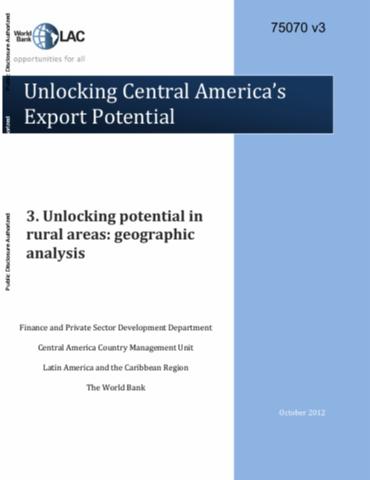Unlocking the Central America's Export Potential
The Central America region is a small market. The region contains around 43 million inhabitants (0.6 percent of total world population) who generate around 0.25 percent of the world's Gross Domestic Product (GDP). While the region has successfully embarked on a regional integration agenda and has strong commercial links with the US, extra-regional trade-mainly with large fast-growing emerging economies-remains a challenge.




